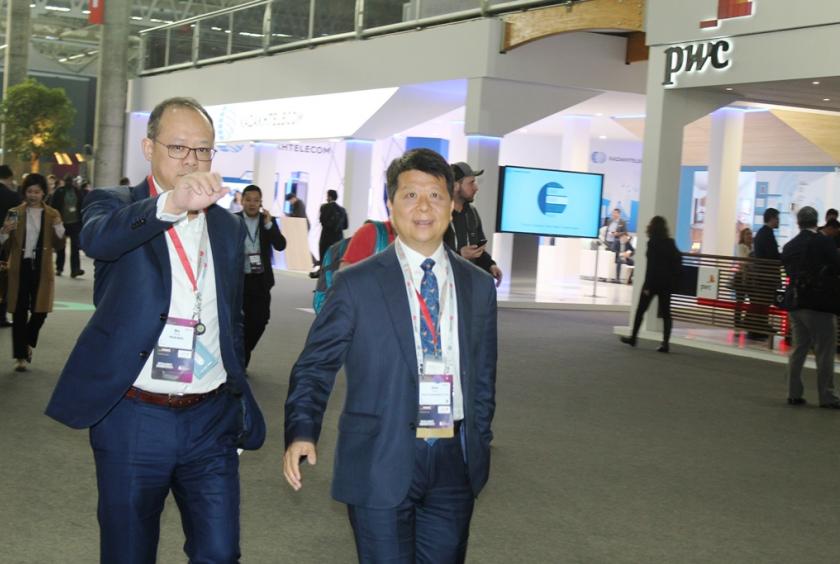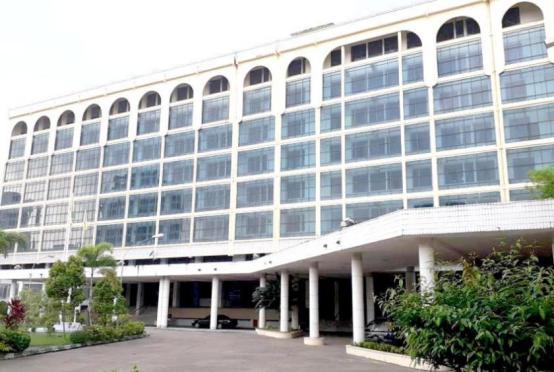
Despite the ongoing accusations by the United States over the security of Huawei Technologies Co’s 5G products and solutions, the Chinese giant reiterated its commitment to go ahead with its efforts for bringing the fifth generation of wireless technology (5G) to all over the world, according to the firm’s chief.
Guo Ping, rotating chairman of Huawei Technologies Co, said on Tuesday at the Mobile World Congress2019 held in the capital of Catalonia the US security accusation on its 5G has no evidence.
“It [the accusation] has no evidence, nothing,” he said.
“The irony is that the USCloud Act allows their governmental entities to access data across borders.”
He urged to choose Huawei for the best technology and greater security.
“We have not, and will never plant backdoors. And we will never allow anyone to do so in our equipment,” he pledged.
“Our responsibility is that we do not do bad things. We take this responsibility very seriously.”
The executive takes pride in saying that the firm has a strong track record in security for three decades, serving three billion people around the world.
“There has never been more interest in Huawei. We must be doing something right.”
The executive said people cannot use prisms, crystal balls, or politics to manage cyber security.
“It's a challenge we all share,” he said in his bold speech.
“Prism, prism on the wall. Who is the most trustworthy of them all? It is an important question to ask. And if you do not understand this question, go ask Edward Snowden,” he said.
The executive called for the need of aligned responsibilities, unified standards, and clear regulations to build a system that all industry players can trust. He said technology providers, carriers, regulators and the industry as a whole are responsible to comply with standards and build secure equipment.
“With 5G, we have made a lot of progress over 4G. 5G is safer than 4G. As vendors, we do not operate carrier networks, and we do not own carrier data,” he said.
Carriers are responsible for the secure operations of their own networks, and they can manage, monitor, and audit all vendors and partners to make sure their network elements are secure.
“The boundaries between different networks are clear. Carriers can prevent external attacks with firewalls and security gateways,” he said.
Call for standardisation
The executive also stressed the importance of working together on standards as a shared responsibility.
“We need to standardise cyber security requirements, and these standards must be verifiable for all vendors and all carriers,” he said.
He said Huawei fully supports theNetwork Equipment Security Assurance Schemejointly defined by GSMA and the 3rd generation partnership project, as the standards were created with the support of many government security agencies that have strong capabilities to verify 5G security.
He seems proud to announce that Huawei is the first company that can deploy 5G networks at scale. The firm already started helping carriers deploy 5G at scale.
“We can deliver the simplest possible sites with better performance.With 100 megahertz, our 5G can reach more than 14 gigs-per-second. That is for a single sector. We are at the leading edge of performance,” he said.
On Huawei 5G, single user speed reaches 1.3 Gbps.Last October, the firm launched the world’s most powerful AI chips_ Ascend 910 and Ascend 310. The chips were designed to bring intelligence to all scenarios, and reduce computing power costs for carrier networks.
“We have developed many algorithms and models for carrier networks. With artificial intelligence, we can increase resource efficiency, make O&M [observations and measurements] easier, and reduce power consumption for telecom networks,” he said.
The executive expressed his belief that consistent investment has produced many positive results.
“Through nonstop investment, we can keep providing our customers with new, innovative products and more efficient services,” he said.















